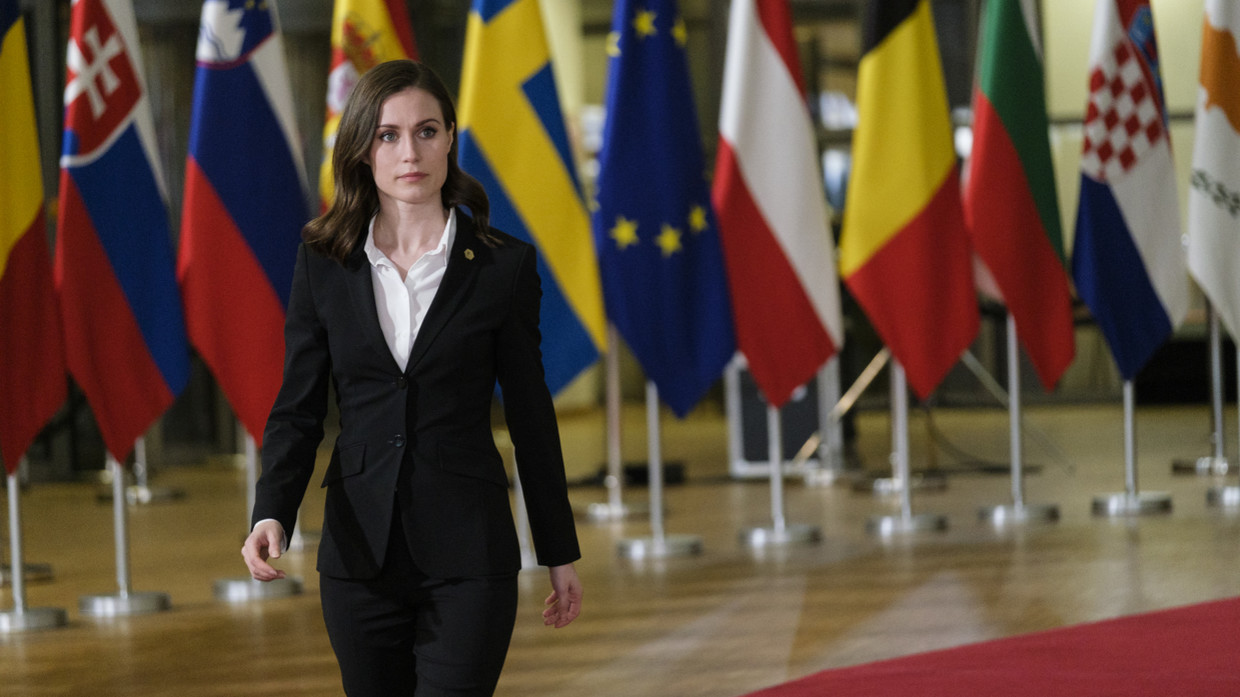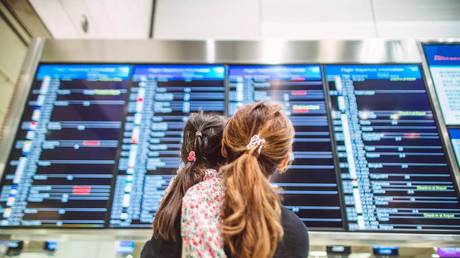Finnish Prime Minister Sanna Marin said on Tuesday that EU sanctions, including the full suspension of a visa facilitation agreement with Russia, are “not enough.” She suggested that ordinary Russians should feel pressure in their everyday lives.
“We must be ready to take more sanctions because the more impact we [have] with sanctions, the more expensive it will become for Russia to continue this war,” Marin told the European Parliament.
It’s not the first time Marin has suggested moves against the ordinary Russian population since the conflict in Ukraine began. It’s “not right” that Russians “can live a normal life, travel in Europe, be tourists,” Marin told the state broadcaster Yle on August 8. That statement was echoed the next day by Estonian Prime Minister Kaja Kallas, who tweeted that “visiting Europe is a privilege, not a human right.”
On September 9, the European Council announced the full suspension of the visa facilitation agreement between the EU and Russia. The move doesn’t impose an outright ban, but increases the visa application fee for Russian nationals from €35 to €80 for all applicants. The processing time may also be lengthened from the current 10 days to up to 45 days, combined with the need to present additional documents. According to Commissioner for Home Affairs Ylva Johansson, who presented the plan on September 6, “to be a tourist in the EU is not a fundamental right.”
So far, nine European countries have refused to accept documents for tourist visas from Russians, according to the Association of Tour Operators of Russia. The list includes Latvia, Lithuania, Estonia, Poland, the Czech Republic, Slovakia, Denmark, Belgium, and the Netherlands.
However, a complete visa ban proposal for all Russian tourists has failed to gain unanimous support in the bloc. Germany, France, Hungary, Luxembourg and Austria have raised objections. EU foreign policy chief Josep Borrell also warned against the move. “I don’t think that to cut the relationship with the Russian civilian population will help and I don’t think that this idea will have the required unanimity,” he told Austria’s ORF TV on August 29.
Meanwhile, Moscow says it will not introduce retaliatory visa restrictions for foreign citizens, according to President Vladimir Putin, who explained during the Eastern Economic Forum on Wednesday that a tit-for-tat response would be against Russia’s interests. On Sunday, Russian Foreign Minister Sergey Lavrov also said Moscow considers it inappropriate to introduce retaliatory visa restrictions for citizens of EU countries.


